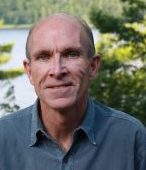Director’s Letter
Dear Readers,
Finding solutions to sustainability problems takes ingenuity and persistence. That’s because the problems arise  from a tangled mix of economic, social and environmental issues which require a focus on the well-being of both people and nature.
from a tangled mix of economic, social and environmental issues which require a focus on the well-being of both people and nature.
At the Mitchell Center, we’re always looking for ways to help students and faculty grow their problem-solving capacity. Fortunately, many important resources are close at hand, including seasoned researchers that work alongside students and young faculty who are still learning the ropes.
A great example of this is Linda Silka, a social psychologist with over 30 years of experience building innovative university-community partnerships to tackle complex sustainability challenges. Since becoming a Senior Fellow at the Mitchell Center in 2014, she has mentored more than two dozen faculty and scores of students who are seeking to hone their skills in helping partners from government, the private sector and citizens groups build a brighter economic and environmental future for their communities.
In our lead story – Looking Back, Moving Forward – you’ll get a glimpse of some key ways Linda has contributed to an innovative partnership focused on community and economic development in the Katahdin region.
We were also delighted that Linda was selected to receive the 2018 Career Recognition Award from UMaine’s Rising Tide Center for her decades-long commitment to helping universities and stakeholders join forces in connecting knowledge with action.
But mentoring can go both ways. Students and young faculty are encouraged to take “deeper dives” into the latest research regarding the causes of, and potential solutions to, complex problems, which makes them an invaluable resource to their senior colleagues.
Research teams also benefit from their interactions with stakeholder partners. Learning about the real-world experiences of government officials, business leaders and community members increases the shared understanding of sustainability problems and the likelihood of developing solutions that really work.
As we learn from, and with, each other, we’re growing our collective capacity to tackle complex sustainability problems in and beyond Maine. We’re also nurturing a new generation of problem-solvers that will be better equipped, and even more deeply committed, to creating a brighter future.
Director, Mitchell Center for Sustainability Solutions
